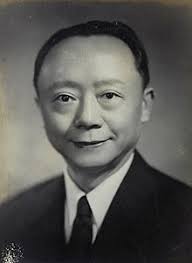Ho Meng-hsiung Ho Meng-hsiung (1903-7 February 1931), Chinese Communist labor organizer who opposed Li Li-san's policies. He was expelled from the Chinese Communist party in 1931 after opposing the leadership of Chen Shao-yü. He was executed by the Nationalists. Mao Tse-tung later praised him as a "noble martyr." Little is known of Ho Meng-hsiung's early […]








